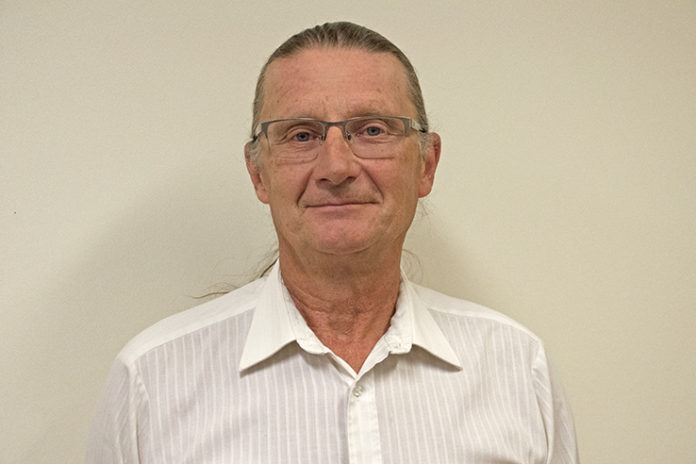
Bill Clary has a sense of urgency in helping share the Green Party message in the Cypress Hills Grasslands Constituency in the upcoming federal election.
Clary, who carried the Green Party banner in this constituency during 2008 federal election, and once against Ralph Goodale in 2011, said the dire situation with Climate Change needs to be addressed in a serious way starting immediately.
“What the Green Party is suggesting needs to be done is so far removed from what the main political parties are offering up. It almost requires creating a context because the Green Party has so clearly embraced what the scientists are saying about our current situation on our Climate Change. And it’s almost like its peripheral to the current main political parties,” Clary said during an interview this past week.
“And the Green Party is saying that if the scientists are accurate, and we embrace that science, we need to radically shift from fossil fuels to renewable energies. And I don’t hear that urgency in these main political parties.”
Clary noted that with all the misconception surrounding Climate Change, he was hoping to engage voters in town hall events or one-on-one visits to share his climate concerns.
“If there are folks interested, maybe explain a little more deeply what is the problem that we face, and the ways in which we want to engage that. That we’ve come up with a plan that incorporates a major shift. It’s a whole of society to renewable energies,” he said.
“The technology exists. The know how exists. We just need the political will. And I think that the people of Canada will get behind a more responsible approach to what we need is a balance in our environment.”
And clearly, with the platform presented by the Green Party, it will not be business as usual for the economy and society because of the dire situation of the environment.
“It’s actually a complete transformation,” he said of the plan. He added Elizabeth May has called for forming like a War Council, similar to what was used during World War II, where all parties are involved.
“There’s a common recognition that we have basically an existential crisis on our hands. And that it’s understood, and it’s acknowledged, and that we’re going to work together to make this transition.”
“And in the end, if we’re working with the program that the Green Party’s put forward, it has the opportunity to benefit everybody across the board. Because the amount of work that would be required for us to make that kind of change is huge, because it’s a complete change of our whole infrastructure, and adaptation to our infrastructure. So huge employment. But it’s a radical shift, it’s a dramatic shift from the status quo.”
“What’s odd about this is that although its a radical shift from the status quo, in relation to what scientists are telling us through the Intergovernmental Panel on Climate Change, this is a modest approach to the changes that are required globally.”
Clary added that the two main political parties who have set Canada’s policy and direction over the past 40 to 50 years, and who are armed with the same information on Climate Change, have taken no real action.
“We haven’t sort of set a plan as a nation to say we’re moving, we’re transitioning. And we haven’t taken that action. And because we haven’t, now we’ve got this situation where it would appear that the times require us to take this dramatic position. And it’s unfortunate that it has been neglected for so long, but all we can do is to acknowledge where it is and the reality we are in right now, and then move forward with the understanding that we’ve got to do everything we can to make this transition. And I just don’t think that it’s being taking seriously.”
He feels that these Green initiatives would have a beneficial effect across Cypress Hills Grasslands.
“I think that the idea would be that we work towards more sustainable communities. That would be the idea that as much as possible we shrink down. Instead of getting our lettuce from California, that we work with the kind of technologies that are available so that we’re growing a lot of our foods right here locally.”
“I’m imagining that we’re looking at being more supportive of smaller farming operations instead of these big agri business operations. And that there’s a focus on building strong community ties that I think are being eroded in a lot of these communities by today’s bigger agri-businesses. You’ve got a couple of farmers in some of these smaller communities that farm massive amounts of land. But the whole base of the economy of that community is undermined because it used to be 20-30 families that were all living off that same amount of land and they were all feeding into the economy and supporting those smaller communities. So I think the idea would be we’re working towards basically rebuilding smaller communities, with a constant focus on the idea of working with as little a carbon impact as possible.”
“This is a huge transition and it requires a leap of faith in a sense. Supported by the acknowledgement that if we don’t act that the impacts, and I think we are already feeling them. Because you take a look at what’s taken place with this snowfall that happened in September. That’s really hard on the Southwest corner here. We’ve got all kinds of farmers that’ve got all kinds of crop in the field, and now we’ve had a significant frost. And that’s impacting that area. This kind of weather event is part of climate disruption. This is part of what we to look towards. And so we need some resilience built into the system, so that when these kind of events occur, that there’s support systems available for those that are significantly impacted by this kind of thing.”





